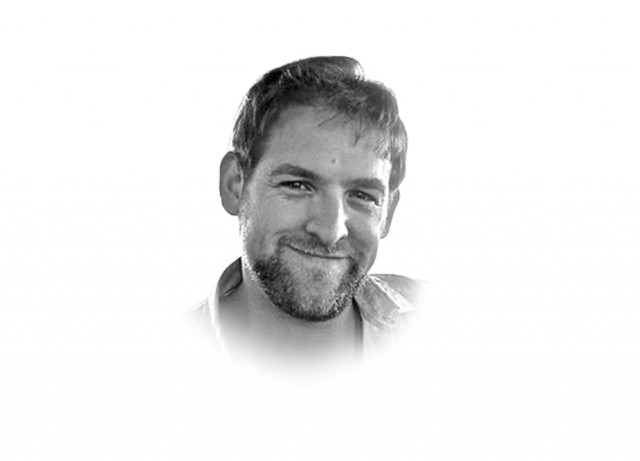The hypocritical media
It seems the Pakistan media like a free media except when it comes to commenting on itself.

The hypocritical media
Despite this, the worst excesses of Britain’s fourth estate have been kept in check. Partially thanks to the relative independence of media organisations such as the state-owned BBC and The Guardian, but also due to the satire boom of the 60s. It was this decade in which Private Eye, Britain’s leading satirical magazine, emerged. In the intervening years the Eye has become an important safeguard against media arrogance. It’s long running Streets of Shame column often reports the hypocrisies and downright lies of the press ahead of its rival news organisation. Private Eye went after the notoriously litigious Robert Maxwell, exposing his fraudulent business practices, long before the mainstream media dared to join the fray. After losing one libel case to Maxwell, Ian Hislop, Private Eye’s editor, famously stood by the court steps and declared: “I have just written out a very fat cheque to a very fat Czech” (Maxwell was of Czechoslovakian origin). Maxwell promptly sued Hislop again for defamation.
Satirists such as Hislop have, over the years, brought greater transparency to the British media. In turn giving licence to the mainstream press to critique rival organisations. Sadly, in Pakistan, our media proprietors still operate under an antiquated Gentleman’s agreement: we won’t criticise your group’s failings, as long as you don’t mention ours.
On more than one occasion I have experienced this pernicious censorship. When I was producing and writing the news satirical quiz show “News, Views, and Confused” Aaj TV gave me free reign to satirise the entire political establishment. However, they weren’t so keen on us mocking fellow media groups. One joke, that was censored, still rankles. A Jang journalist had given an unconditional apology to the Supreme Court after a story printed under his byline turned out to be incorrect. The joke went: ‘The English translation of ‘jang’ is war. And as the saying goes: Truth is always the first casualty of war.’ The joke was cut.
More recently I singled out in a column a particular news network (Geo News) for its sensational and dehumanising coverage of the Airblue crash. The column never ran. This self-censoring is dangerous for democracy when you consider the power of news organisations. This media group has become Pakistan’s unofficial opposition, often wielding more clout than the government of the day, with its main channel setting the news agenda. Yet, we in the mainstream media only criticise and scrutinise the political class. When it comes to shining a light on our media barons and their henchmen we are mute.
It has been left to the internet and blogosphere to fill the void. Of late, blogs such as Cafe Pyala have become essential reading for anyone who wants to understand the inner workings, foibles and the consummate superciliousness of our media class. They are bringing much needed scrutiny to an insufficiently scrutinised profession. Of course, if the media covered other media by itself, there would perhaps be no need for anonymous blogs — which are free from oversight and in many ways a poor substitute for authentic journalism.
In a country where the director of news at one of the most influential Urdu news channels (Geo), the editor of a major English newspaper (Dawn), and the spokesman for the army are all related to each other, examination of the media is absolutely vital. An essential and healthy check on unfettered power. So the next time the media collectively screams ‘What about freedom of media?’ after some government clampdown we should all raise a sceptical eyebrow at their hypocrisy. It seems the Pakistan media like a free media except when it comes to commenting on itself.
Published in The Express Tribune, September 22nd, 2010.
This article has been revised to reflect the following correction:
Correction: September 22, 2010
Due to a proofreading oversight, an earlier version of the article had misspelt organisation. The error has been corrected.













COMMENTS
Comments are moderated and generally will be posted if they are on-topic and not abusive.
For more information, please see our Comments FAQ